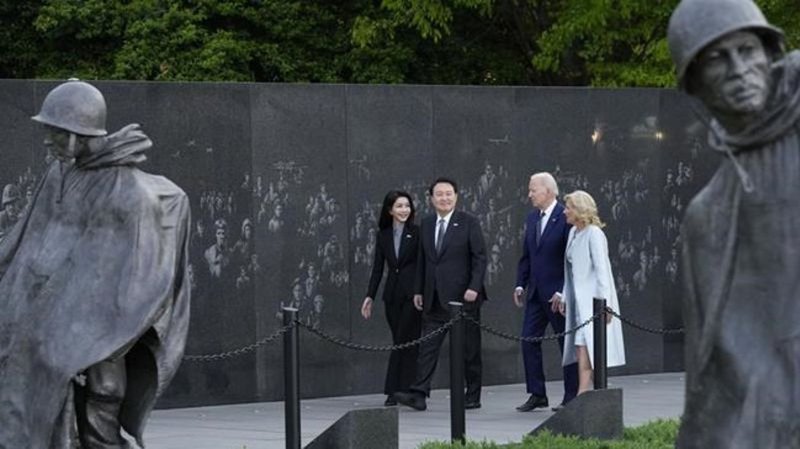
US to send nuclear ballistic submarines to Korean Peninsula
WASHINGTON (AP) — Presidents Joe Biden and Yoon Suk Yeol on Wednesday will sign an agreement that includes plans to have U.S. nuclear-armed submarines dock in South Korea for the first time in more than 40 years, a conspicuous show of support to Seoul amid growing concern about nuclear threats by North Korea, according to senior Biden administration officials.
The planned dock visits are a key element of what’s being dubbed the “Washington Declaration,” aimed at deterring North Korea from carrying out an attack on its neighbor. It is being unveiled as Biden is hosting Yoon for a state visit during a moment of heightened anxiety for both leaders over an increased pace of ballistic missile tests by North Korea over the last several months.
The three senior Biden administration officials, who briefed reporters on the condition of anonymity ahead of the official announcement, said that Biden and Yoon aides have been working on details of the plan for months and agreed that “occasional” and “very clear demonstrations of the strength” of U.S. extended deterrence capabilities needed to be an essential aspect of the agreement.
The agreement also calls for the U.S. and South Korean militaries to strengthen joint training and better integrate South Korean military assets into the joint strategic deterrence effort. As part of the declaration, South Korea will reaffirm its commitment to the Nuclear Non-Proliferation Treaty, an agreement signed by several major nuclear and non-nuclear powers that pledged their cooperation to stem the spread of nuclear technology, the officials said.
